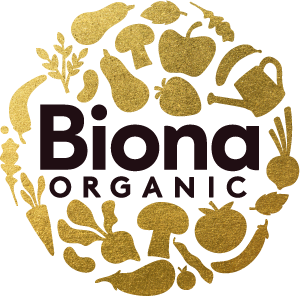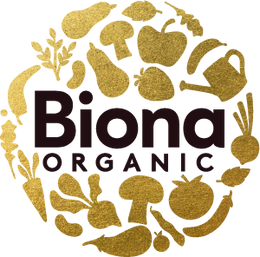Why Organic Food is Better for Our Kids
It’s Organic September! #OrganicSeptember
Organic September is a ‘month-long campaign designed to encourage more people to try organic as a way to promote and educate people about organic food & farming practices.’ Started by the Soil Association, Organic September has never been more relevant. The climate crisis rages on and environmental activism is growing at an unprecedented rate as we become more educated on the damage we’re doing to our planet.
We believe in organic food. We know it’s better for our planet and for our bodies. We prefer its natural flavour, its untouched nutrients and goodness. We like to know our food hasn’t been tampered with or modified in order to satisfy large-scale manufacturing criteria. That’s why we have an unwavering commitment to 100% organic, ethically and sustainably sourced food.
This year, to celebrate Organic September, we’re donating 5% of our online shop sales to Garden Organic who do so much to educate and work with children and schools about the farm-to-fork ethos and benefits of eating and growing organic.
Garden Organic believe it’s crucial to teach young people the value of organic growing and eating and so do we. But why is it important for our kids to be eating organic? We look into some of the reasons incorporating organic into your family’s daily diet is better for you, your kids and the environment.
Taste Adventures
The great thing about eating organic is that food tastes better. Fact! Studies have shown that less stress on a plant, as a result of organic farming techniques, produces a higher level of antioxidants, and that in turn affects a human’s positive perception of flavour.
So, as your little ones are developing and exploring new foods, tastes and sensations, organic food is the more exciting and delicious journey.
In addition to the huge array of fresh, organic fruit and veg available seasonally, let your kids try all sorts of organic delights. Introduce them to the black olive pate and sauerkraut! The more they try, the more varied your family menu can be.
Rainbow Treats
Organic food doesn’t just have the benefit of not having dangerous additions, it also has the benefit of having excellent and healthful properties in abundance.
Antioxidants are responsible for reducing free-radicals, by-products of oxygenation in the blood, which in turn increases resistance to disease.
Organic foods, untreated by pesticides and hormones contain a bounty of antioxidants and nutrients, cultivated by the plant for its natural protection. Phytonutrients are a plants natural defence and the presence of phytonutrients is usually signalled by vibrant colours. So, eat the rainbow!
Kid-friendly foods naturally rich in antioxidants include:
- Blueberries
- Strawberries
- Beans
- Spinach (anything leafy and green!)
- Raspberries
- Beetroot
- Tomatoes
- Peppers
Basically, the more colour the better. And that’s good news if you’re trying to entice your children to get more goodness in their tums. If you’re looking for a family-friendly meal packed with colour (and antioxidants), try our Beetroot Risotto or loaded sweet potato fries covered with colourful veggies.
Hormone Disruption & EDCs
The endocrine system is responsible for our body’s secretion, storage and regulation of hormones. This system supports healthy development and function throughout our lives and takes care of our immune system, nervous system, respiratory system, well, you name it!
Endocrine-disrupting chemicals (EDCs) are chemicals that mimic, block, or interfere with hormones in the body. And, as our hormones regulate pretty much every developmental function in our bodies, disruption can be harmful. EDC interference can lead to problems with growth, reproduction, obesity, brain function, disease immunity - the list goes on.
EDCs are mostly man-made and come from all areas of our modern lives - in our plastics, our cleaning products, our electronic devices, even in dust and in the air. Most notably for us, the pesticides and chemicals used to genetically modify our foods also contain EDCs. The World Health Organisation identifies pregnant women and children as the most vulnerable to these chemicals and suggest that eating organically might be one way to reduce exposure.
Organic farming does not use pesticides and harmful chemicals in the production of its food, it doesn’t use antibiotics, colours, preservatives and doesn’t allow food to be genetically modified. By eating organic food, your children are on their way to a healthier functioning body and a more vibrant life.
All in all...
By eating organically and making small changes to our family’s diet, we can reduce exposure to disruptive chemicals and increase our intake of the good stuff.
If swapping to organic seems daunting, we have a massive range of organic substitutes perfect for incorporating into daily life - and a wealth of recipes you and your little ones will love.
Have a look around for veg box schemes in your locality, or have a go at growing your own. Garden Organic have loads of great ideas for getting your wee ones involved in the great outdoors and who knows, the joy of munching their plant-to-plate homegrown produce might even encourage them to eat a few sprouts…
Tell us how you and your kids are getting involved in Organic September, tag us in your pics and share your organic swaps #organicseptember









